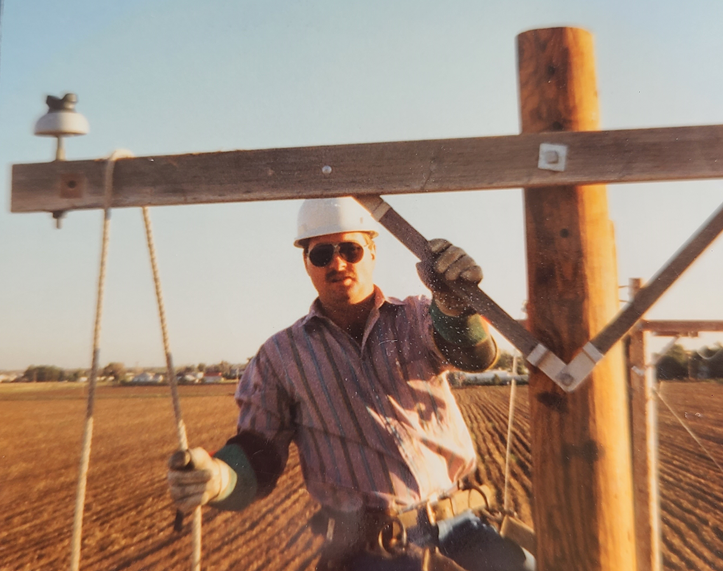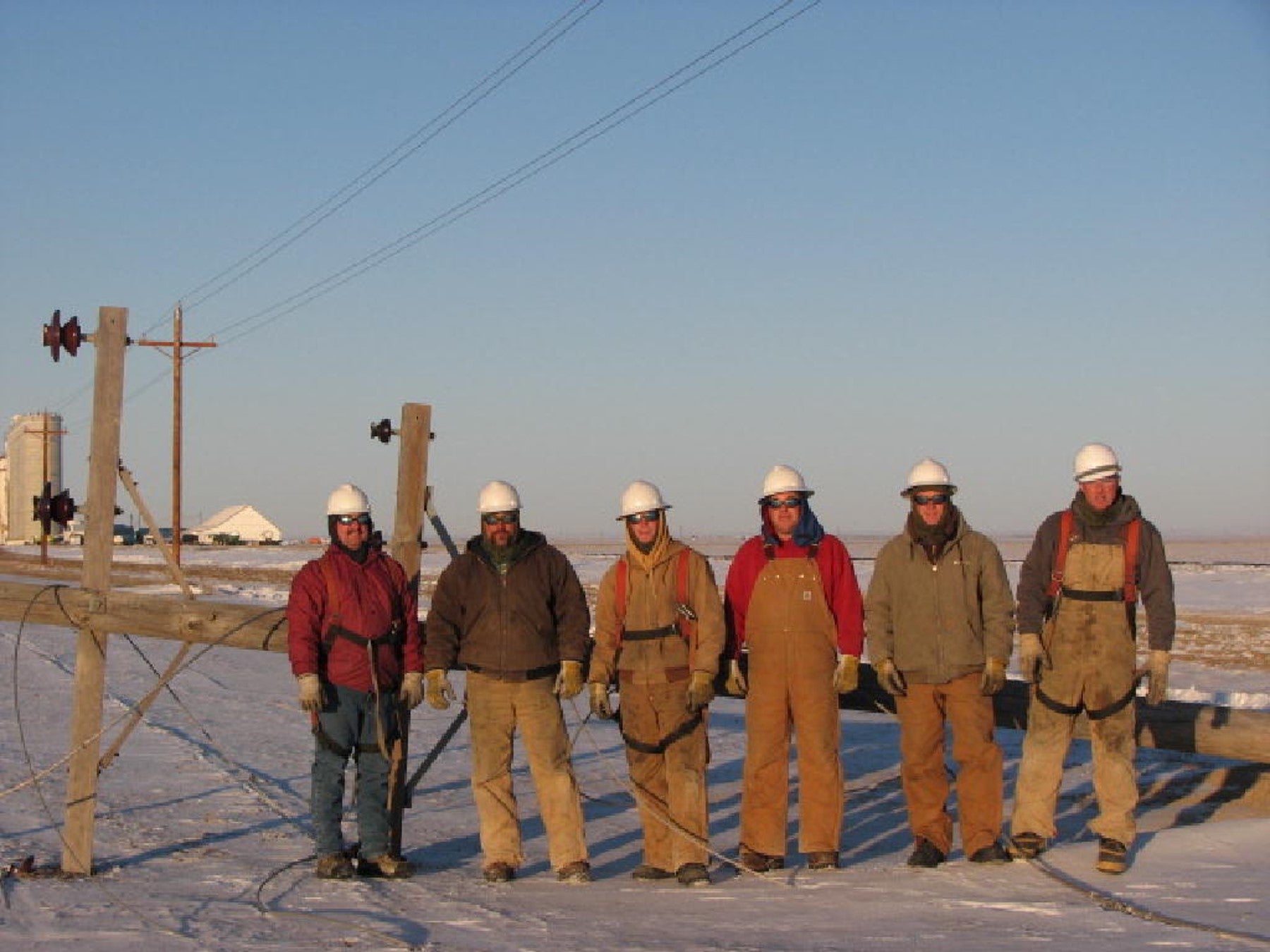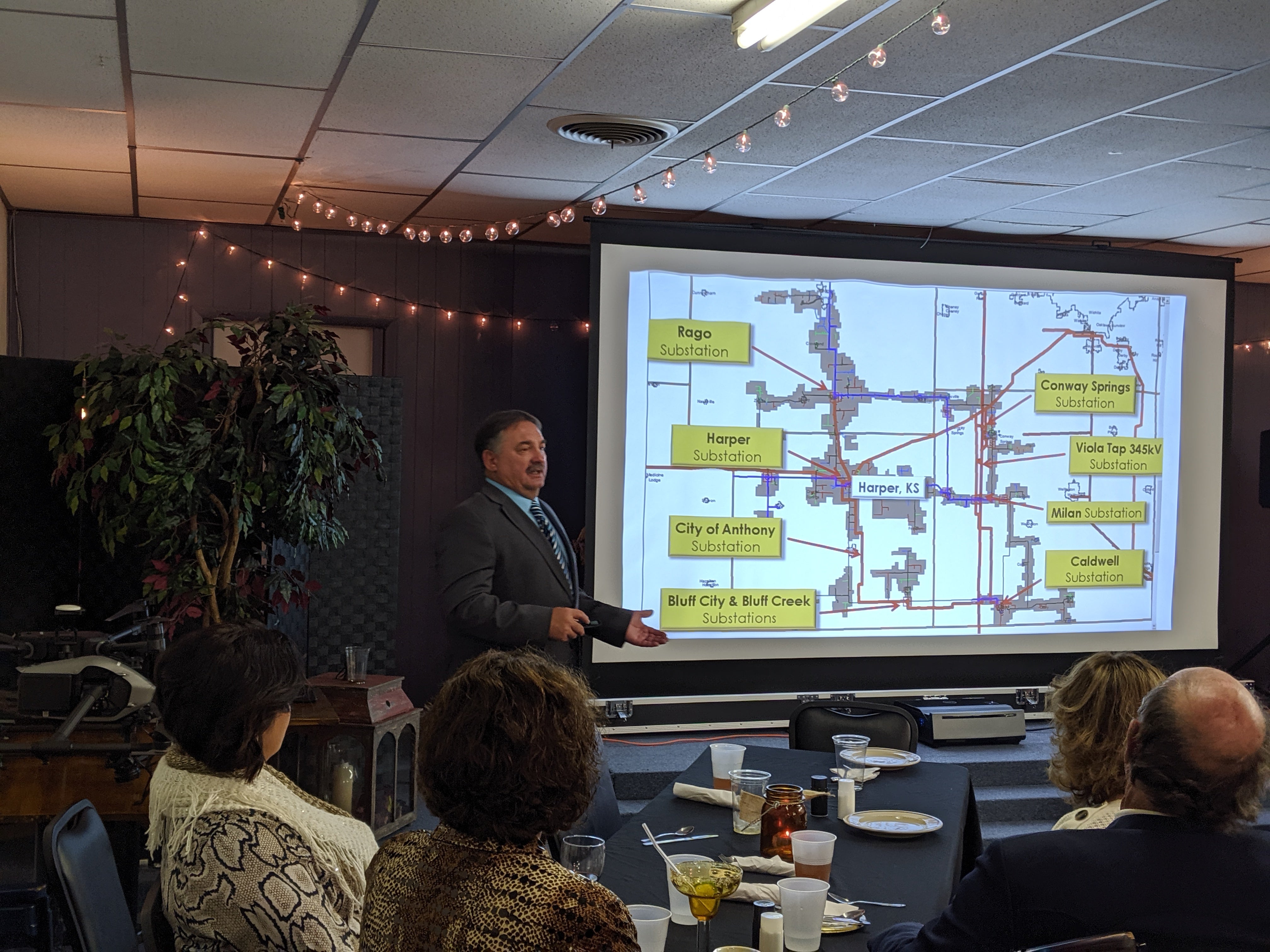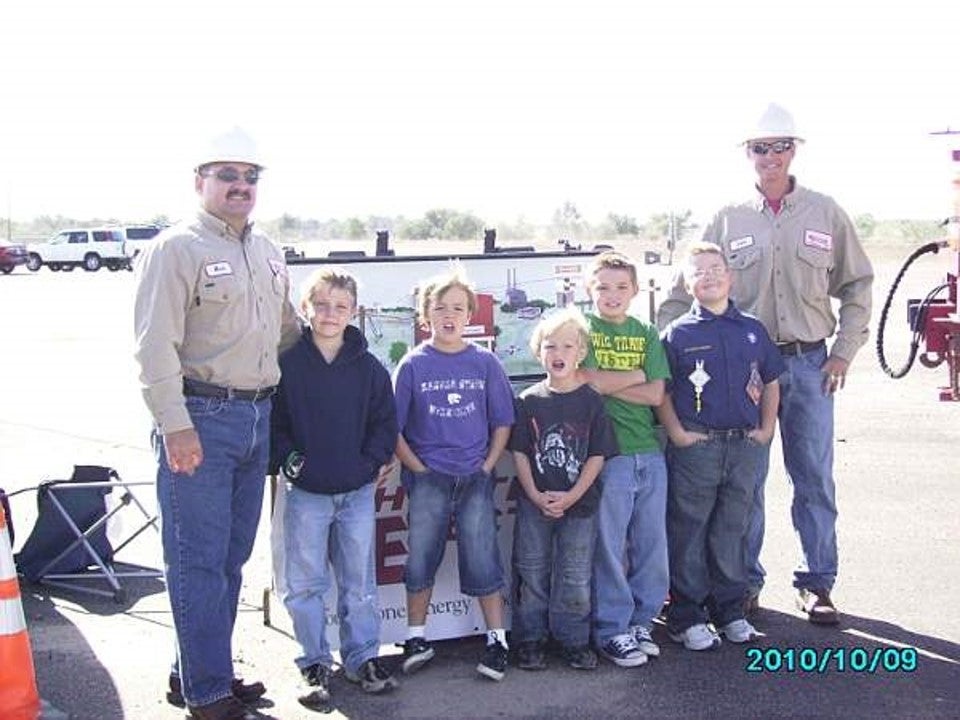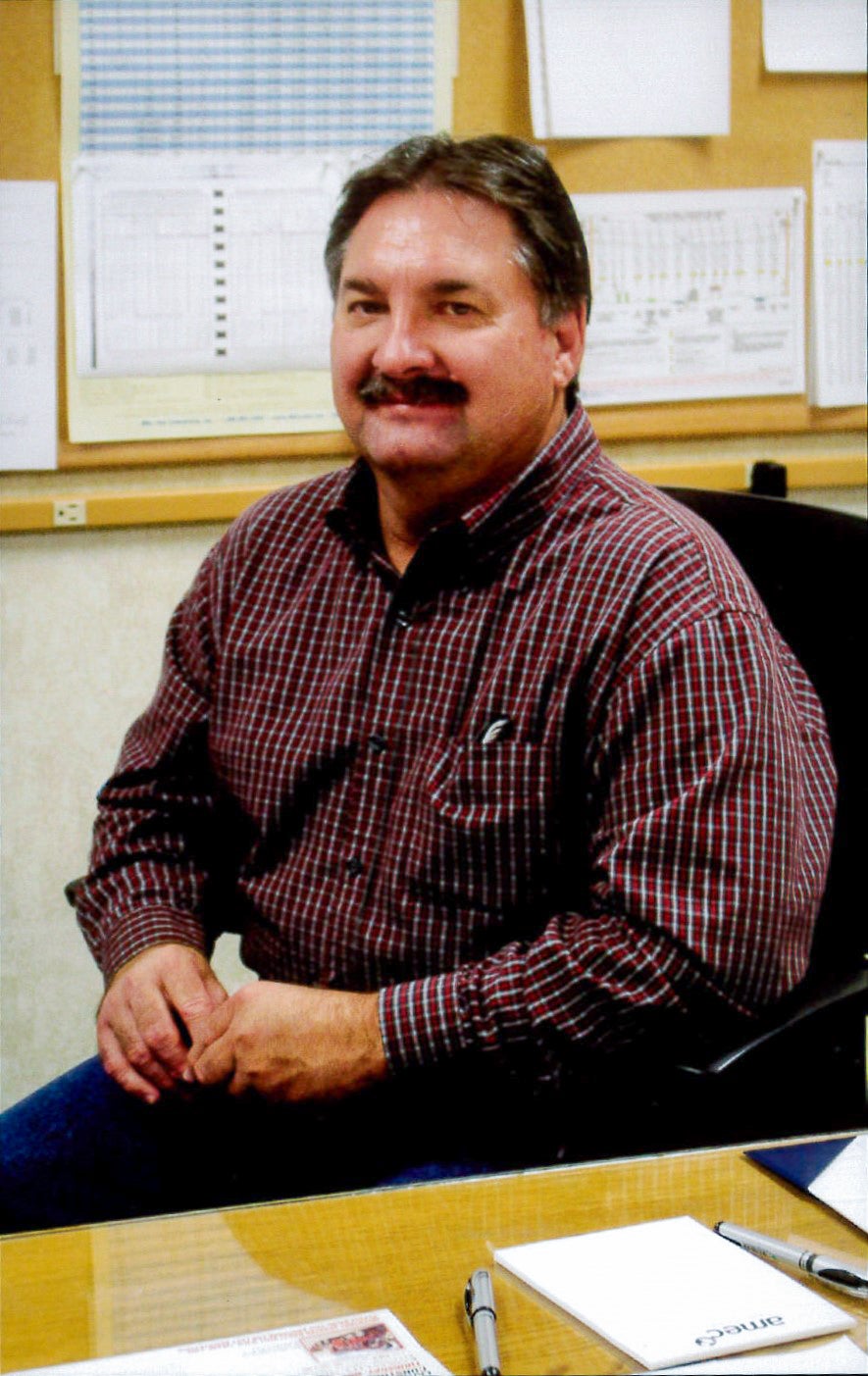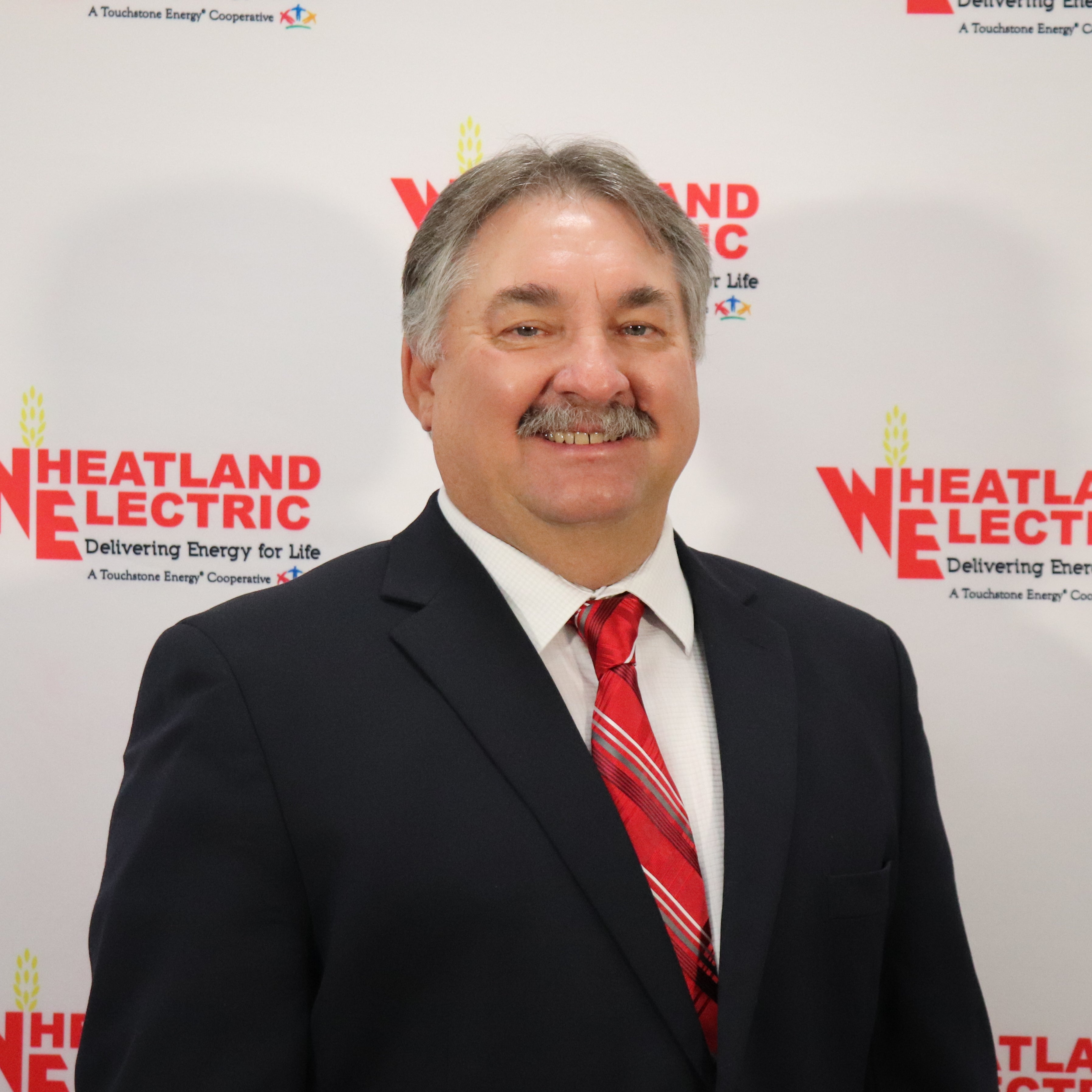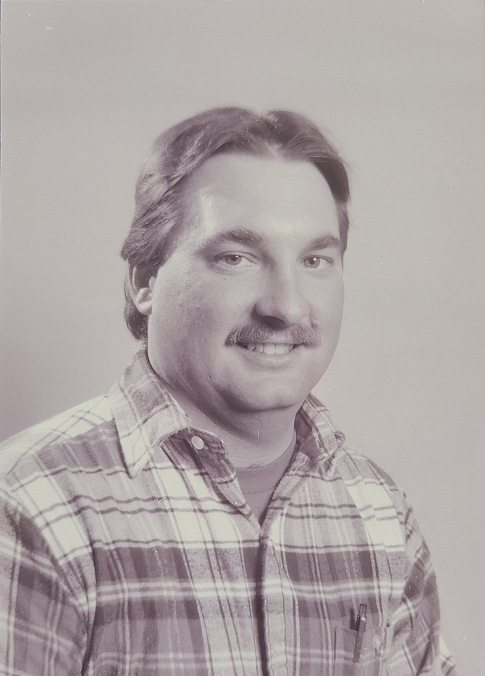When RICK KLAUS, a Finney County native, first started as a groundman at Wheatland Electric Cooperative, Inc. (WEC), over four decades ago, his current role — director of operations — didn’t exist.
In WEC’s nearly 76-year history providing power to southwest and central Kansas, Klaus, who will retire Sept. 6, is only the second individual to serve in his position, overseeing a division that serves as the backbone of the cooperative.
In 1982, Klaus joined the line crew in District 5 (Finney, Kearny and Gray counties) at just 20 years old.
He was driven by the promise of a stable and challenging job with good benefits. Though he struggled to find his place in those early days, Klaus now says he wouldn't change a thing when he looks back at all the “hard hats” he's worn over the years.
“My first job here, I worked in the warehouse three days and, I just hated it for some reason. I don't know why — I was just very disappointed. But my goal was to work two years until I found something better. Well, I've been here over 42 years, and I haven't found anything better,” he said, with a grin.
RISING THROUGH THE RANKS
Klaus entered WEC’s long-standing and award-winning lineman apprenticeship program as a first-year apprentice about six months after his first day.
In fact, Klaus’ climb from groundman to director offers a glimpse into the heart and soul of the cooperative. Linework has changed tremendously since the early 1980s, from getting the job done to advancements in work culture, employee safety, cooperative policies and more.
“When I started, it was pretty basic — here’s your screwdriver, here’s your hammer, now don’t do anything stupid,” Klaus said, laughing. “I would say the equipment today is better, but I wouldn’t say the work is any easier. Because now (lineworkers) are dealing with heavier wire, taller poles, and longer crossarms.”
After completing his apprenticeship training, Klaus was promoted to journeyman lineman in 1985. From there he found himself in a new role every eight years or so, each offering new challenges and opportunities.
In 1990, he became foreman of the District 5 underground crew, and in 1998, foreman of the District 5 substation crew. In 2014, he became the manager of District 5, a testament to his leadership and dedication to the co-op. In 2015, Klaus was promoted to area operations manager, overseeing all of WEC’s five western territory districts, before entering his current role at the very top of the division in 2018.
As director of operations, Klaus oversees an extensive network spanning 4,600 miles of power lines across 110,000 power poles and heads a department of about 85 employees, including more than 60 lineworkers. Managing more than half the co-op's employees is no simple task. When Klaus was first hired, he never envisioned handling the immense responsibilities he has successfully managed over the past five years.
“Now, I did as a district manager, and I could see myself fitting into that role, but it’s a pretty big jump where you have one district compared to seven,” he said. “I’ve been fortunate enough to work in almost every (operations) department out here except for one or two, and I've filled in from time to time. I have no regrets of the path I've taken and all the people that I’ve helped.”
WEC’s service territory covers 14 Kansas and three Colorado counties, and Klaus is responsible for supervising four district-level managers who oversee WEC’s seven districts. This ensures the functionality of more than 32,000 meters, which power over 21,000 homes and businesses across southwest and central Kansas.
His other responsibilities include budget management and equipment procurement, consulting with WEC’s engineers and overseeing long-term projects, such as the co-op’s five-year work construction plan. His experience in the field provided him with a unique perspective, enabling him to navigate the obstacles of modern-day operations effectively.
“Some of the biggest challenges, especially after (the pandemic), have been the long lead times on material and prices for equipment, which have skyrocketed,” Klaus said. “At the same time, we’re trying to keep our (electric) rates stabilized — that's a big challenge.”
ADAPTING TO CHANGE
Klaus became WEC’s second director of operations following the retirement of Phillip Shelley, who served in the same role from Dec. 1990 until his retirement in January 2019.
In fact, Klaus and Shelley’s careers both began at WEC in the same year — 1982 — and Klaus said he leaned on the former director’s guidance when it came to familiarizing himself with Sunflower Electric Power Corporation’s transmission system and building a relationship with WEC’s democratically-elected board of trustees.
“(Shelley) was easy to approach, willing to offer advice, and talk about anything,” he added.
During Klaus’ early decades as a lineman in the '80s and '90s, before he traded in his gear and gloves for a suit and tie, pinpointing the source of a power outage was far more challenging in contrast to today’s technology driven solutions.
“Back then, a lot of the troubleshooting was done in the field," Klaus said. "You just basically drove out looking to see what caused the outage. Now, you can just about go through our system in the office and have an idea on where to send your linemen to look for the problem.”
In recent years, the addition of advanced metering infrastructure (AMI) has revolutionized outage management, allowing for quicker, more efficient responses. Two-way communication has also eliminated the need for meter readers, operations’ employees who used to collect data from WEC’s meters back in the day.
Of course, while some things have gotten easier, Klaus said the job not only for lineworkers but for other operations’ personnel — staking technicians, engineers, mapping coordinators, dispatchers, and more — has also grown more difficult.
“Definitely (the technology) makes our processes quicker and more seamless, to the benefit of our (co-op) members,” he said. “But it almost seems like the job, in other ways, has become more challenging because there’s more equipment, there’s more technology, and our system is bigger and more complicated.”
WEATHERING THE STORM
Throughout his tenure, Klaus has overcome numerous weather-related challenges and crises.
In December 2006, Klaus vividly remembers the ice and snow that hit southwest Kansas, causing widespread damage to WEC’s electrical infrastructure and leaving thousands of members without power, some for many weeks.
“The 2006/2007 ice storm was just devastating to our system, especially in District 5,” he said, recalling his time as a substation foreman. “Our west districts like Leoti and Tribune, instead of ice, they got hit with a lot of snow. So probably a week or two later, we were able to make it there. There was so much snow that you could walk up the snow drifts, step over the fence, and down into the substation.”
The frozen ice also caused extensive damage to Sunflower Electric’s transmission towers and lines, too, Klaus added, referring to WEC’s power supplier.
“Sunflower had some big steel towers that just toppled, like a monster had stepped on them,” he recalled. “This just baffled the engineers. They just couldn't believe that would ever happen.”
Winter isn’t the only dangerous season for lineworkers, however.
Back in the spring of 1995, Klaus and his fellow line crewmen faced back-to-back tornadoes, on May 15 and 16, which caused extensive damage to hundreds of poles and power lines across Finney and Gray counties. While working to restore damage from the first tornado in wet and muddy conditions, Klaus recalls learning that another tornado was on its way.
“I remember we were east of Garden City, and we didn't know where to go because there again, the technology — we didn't have access to a smartphone radar. We just heard it on the local FM radio that there was another storm coming. So, we take off, and we started heading south, and we notice the storm chasers going north. I wasn’t sure if we were going the right way!” he recalled, jokingly.
As a district manager, Klaus played less of a hands-on role to help restore power in 2017, when Winter Storm Ursa brought a crippling blizzard to southwest Kansas during the last weekend in April. Having served in various operations roles at WEC, he quickly learned the challenges of the job, both indoors and out.
“I’ve been out in the field, and I didn’t realize how hard the office part was — you’re coordinating things, and you want to put the right people in the right spot,” Klaus said. “It takes a lot of coordination, and some of us in the office have joked that it would be nicer to be out there sometimes, you know just dealing with the issues.”
Despite the many adversities, Klaus’ dedication to ensuring reliable service has never wavered, much like the men and women he’s worked alongside over the years. Ensuring the delivery of safe, reliable and competitively-priced electricity and other essential services is more than just a job — it’s a commitment, Klaus emphasized, something he wishes more co-op members knew.
“These guys are hard workers — sometimes they're working 16 hours a day in these storms, getting very little rest, (dealing with) the heat, the cold, fighting the flies, and everything else," he said. "All at the same time, they're taking their time away from their family. They might have damage at their own house, maybe their basement has water. But instead of dealing with those things, they're trying to provide power to our members and trying to get the lights back on.”
GONE FISHING... FOREVER!
Looking back, a lifetime of service in the co-op world has been both “rewarding and very challenging,” according
to Klaus.
In the restful years ahead, he plans to “slow down,” enjoy hobbies like boating, fishing and golfing, and take the time to be more involved with friends and family, including his very supportive wife of 38 years, Tammy, he said.
Though he won't miss the pressure and responsibility at the top, Klaus said he will miss the “satisfaction of accomplishment” that comes from tackling problems with a great team. His 42-year journey is one of growth, perseverance and an unwavering commitment to the cooperative.
“I was always told that if you were stranded on the side of the road and a co-op vehicle pulled up, that was a good sign because they're good people and they're willing to help you,” he added. “So, I’ve just been very fortunate to work around a great group of people and a very good organization.”
